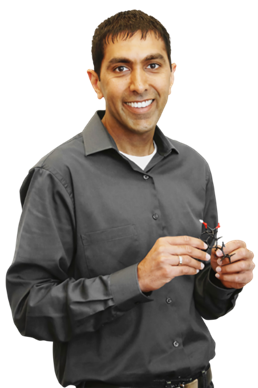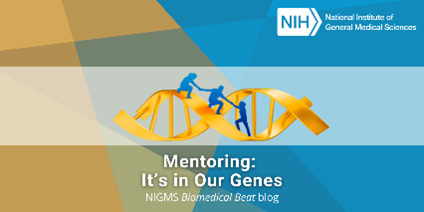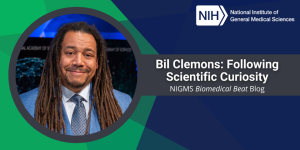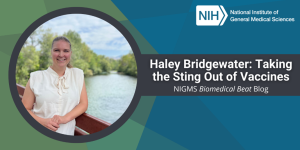Anyone who’s spent time in an academic science lab has probably heard about lab culture. Many labs boast long, rigorous working hours, while others require graduate students and postdoctoral trainees (postdocs) to meet often-unattainable experiment quotas each week. But is sheer quantity really the gold standard we want to hold ourselves to when it comes to training the next generation of scientists?

Neil Garg, Ph.D., Distinguished Professor and chair of the department of chemistry and biochemistry at the University of California Los Angeles (UCLA), and Jen Heemstra, Ph.D., Charles Allen Thomas Professor and chair of the department of chemistry at Washington University in St. Louis, Missouri, think not. In fact, they both felt so strongly that this mindset of training is so outdated and detrimental to academic excellence and integrity that they joined together to create
#MentorFirst, an initiative encouraging academics to embrace mentorship in conjunction with research. “As faculty, both research and mentorship are important,” says Dr. Heemstra. “But it makes a huge difference which one we put first.”
Early in the COVID-19 pandemic, Dr. Garg says a group of students approached him about challenges they were facing, including finding their place in the swiftly changing and complicated world around them. One student had told him, “I want to know that my professor sees that I’m more important as a human being than the next reaction that I run.”

Dr. Garg reached out to Dr. Heemstra and, together with the members in their labs, developed the #MentorFirst pledge, a list of commitments and best practices, and the slogan “Mentoring: It’s in our genes,” capturing the idea that anyone can be a good mentor if they prioritize and work at it. “Pledging to be a #MentorFirst doesn’t mean you abandon research excellence,” Dr. Garg says. “It simply means that you care about the students and researchers in your lab as human beings.” He points out that this philosophy has guided how he’s run his own research lab, but the pledge and commitments through #MentorFirst have helped him articulate his priorities.
#MentorFirst Pledge
I pledge to be a #MentorFirst and will demonstrate my commitment to this pledge by putting into practice each of the action items in the #MentorFirst Commitments:- Cultivate an inclusive environment where everyone feels valued.
- Prioritize professional development.
- Mentor proactively.
- Communicate, set expectations, and be transparent.
- Promote self-care and well-being.
- Grow as a mentor.
- Be a mentoring role model.

“When we put research first, great mentoring is not a guaranteed outcome, but if we put mentoring first and focus on helping each member of our lab be their best and grow as scientists, then a natural outcome is outstanding research,” says Dr. Heemstra. She agrees with Dr. Garg that prioritizing mentoring doesn’t come at the loss of research excellence: “Putting mentoring first means you care so much about the research that you realize the best research is going to happen when individuals feel supported and have the mentoring and advice that they need to be successful.”
Dr. Garg suggests that anyone who questions emphasizing mentorship over research quantity reassess that “old-school mentality.” He says that every student who has joined his lab has both passed their candidacy exams and graduated with future employment secured well in advance, all while conducting high-quality research and publishing their work. With that 100 percent success rate in mind he says, “The philosophy that mentoring is important and should be a top priority is pretty effective.”
“The #MentorFirst initiative is built on the same foundation as many of our programs at NIGMS, which is that students and postdocs are in research labs to be educated and deserve to be treated respectfully and mentored well,” says NIGMS Director Jon Lorsch, Ph.D. “I’m glad to see that NIGMS-funded researchers are pushing this important message forward and leading the scientific community toward this much needed mindset shift.”
The #MentorFirst initiative promotes the importance and awareness of good mentoring practices by encouraging commitments to change the culture in STEM graduate programs. Taking the pledge is the first step in joining a group of people learning to grow as mentors and finding a network of shared resources on changing lab culture. You can find more on this initiative and take or endorse the #MentorFirst pledge on the website MentorFirst.org.
Dr. Garg’s research is funded by NIGMS grant R35GM139593. Dr. Heemstra’s research is funded by NIGMS grant R35GM144075.
Other Posts You May Like
- Understanding Signaling Through Cell Membranes: Q&A With Chrystal Starbird
- Bil Clemons: Following Scientific Curiosity
- From Science Fair to Science Lab: Q&A With Chelsey Spriggs
- Haley Bridgewater: Taking the Sting Out of Vaccines
- Investigating the Inner Workings of Ion Channels With Sudha Chakrapani








this is pretty cool lol